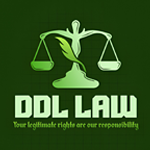CORPORATE SOCIAL RESPONSIBILITY (CSR) LAW IN THE CONTEXT OF INNOVATION IN VIETNAM
Do Thi Dieu Linh
(The scientific paper on the topic "Corporate Social Responsibility (CSR) Law in the context of Innovation in Viet Nam" was conducted, contributed by Lawyer Do Thi Dieu Linh and officially announced at the Scientific Conference on the topic of Innovations Driving a Resilient Society organized by VANJ on November 7th, 2024)
Abstract
In the current era of rapid innovation, Corporate Social Responsibility (CSR) has become essential for aligning business practices with sustainable development and broader societal values. As innovation accelerates, CSR legal frameworks are increasingly necessary to guide corporations in responsibly navigating the social, environmental, and governance implications of their activities. This paper examines the evolving intersection of CSR and legal requirements in Vietnam, with a focus on how existing legislation can support a digitally transforming economy committed to sustainable development.
The study begins by noting that Vietnam currently lacks formalized, comprehensive legislation specifically addressing CSR. Although current legal frameworks promote environmental protection, labor rights, and community development, these regulations do not constitute a cohesive CSR framework. This gap presents unique challenges in the context of digital innovation, where emerging issues like data ethics, cybersecurity, and the environmental impacts of technology production and disposal require more targeted legal guidance. The paper explores potential areas for legislative improvement, suggesting that clearer regulations can drive both corporate accountability and competitive advantage, particularly as international investors increasingly prioritize ESG (Environmental, Social, Governance) metrics. Comparatively, the paper reviews successful CSR models from regions with advanced CSR frameworks, such as the European Union (EU), which integrates corporate social responsibility directly into its regulatory structure. Then, Vietnam can gain valuable insights into establishing CSR as an official corporate responsibility, moving beyond voluntary guidelines to legally binding standards. These insights highlight actionable steps for Vietnam to develop policies and regulations that enforce CSR, ensuring businesses contribute meaningfully to societal and environmental goals.. To this end, the paper recommends the codification of CSR as a mandatory legal responsibility for businesses, rather than merely an encouraged practice. Additionally, necessary adjustments to existing policies and regulations are crucial to create a business environment where companies prioritize not only profit but also clear social accountability. These changes will enable Vietnam to integrate sustainable practices into its development strategy and strengthen its position as a leader in responsible innovation within Southeast Asia.
Keywords: corporate social responsibility, sustainable development, CSR framework.
Preferred presentation type: Poster.
(Notes from the author: This article has been shortened to ensure it fits the research format used (poster). Therefore, the content in the article only represents the main research content)
Acknowledgements
I would like to express my heartfelt gratitude to the organizers of the VANJ 2024 conference for creating a professional research environment that increasingly emphasizes sustainable development. Your commitment to fostering innovative ideas and discussions has greatly contributed to the advancement of research in this vital area.
1. Introduction
In the current era of rapid innovation, Corporate Social Responsibility (CSR) has become essential for aligning business practices with sustainable development and broader societal values. As innovation accelerates, CSR legal frameworks are increasingly necessary to guide corporations in responsibly navigating the social, environmental, and governance implications of their activities. This paper examines the evolving intersection of CSR and legal requirements in Vietnam, with a focus on how existing legislation can support a digitally transforming economy committed to sustainable development.
2. Corporate Social Responsibility (CSR) History
CSR appeared around the beginning of the 20th century. Initially, it was a form of operating model with rules set by businesses themselves, helping businesses contribute to social goals in the form of humanitarian businesses, works for the community. However, this meaning has gradually changed from voluntary at the individual level to mandatory as a policy because of changes in the business and social environment. In the 1950s, CSR began to be defined, typified by the works of Howard R. Bowen, considered the "father of CSR". However, a unified definition of CSR has not yet been decided, mainly due to different perspectives. Since the 1990s, CSR has become a strategic element in business operations globally, emphasizing sustainable development and business ethics. It was also the time that CSR began to be introduced to Vietnam through international projects and investments from multinational corporations. Since 2000, CSR has become a discussed topic in seminars and Government policies, with the attention of international trading partners. However, it’s still in a volutary status until now.
3. Methodology
Document research method is used to synthesize available data from previous surveys, reports, and databases to clarify the current situation of CSR application by businesses in Vietnam; Synthetic and analytical methods are used to clarify Vietnam's current legal regulations on CSR; Comparative method is used to find similarities and differences in CSR policies and regulations in Vietnam compared to the EU; from there, propose appropriate recommendations for Vietnam.
4. Findings
Here are the findings in the study:
- (i) Vietnamese legal regulations on CSR are scattered, not really clear, lack uniformity and connection,
- (ii) Vietnamese legal regulations on CSR have not fully integrated international standards on CSR, leading to a lack of consistency in enforcement,
- (iii) Awareness and capacity to implement CSR of Vietnamese businesses is still limited in many aspects.
5. Discussion
Regulations on CSR in Vietnam are scattered in many laws and articles: Labor Code 2019 (Articles 6, 7, 134, 136...), Enterprise Law 2020 (Articles 8, 109...), Environmental Protection Law 2020 (28, 118, 119. 120...), Consumer Protection Law (Articles 14, 15, 19, 21...), tax regulations, tax incentives and many other regulations. Some commentators have pointed out differences between the approaches to CSR of Canadian, European and Anglo-Saxon economists. According to Chinese consumers, a socially responsible company is one that creates safe, high-quality products; as for the Germans, it is a company that ensures the safety of workers; in South Africa, companies need to contribute positively to the community through ensuring health and education... While in Vietnam, although the term 'social responsibility' is mentioned (Enterprise Law, Article 109), Vietnamese law does not have an exact definition to determine the scope of CSR.
On the one hand, because the scope of CSR has not been accurately determined by definition, Vietnamese businesses have difficulty determining standard indicators to apply CSR in their operations. On the other hand, ISO 26000 is considered one of the universal standards on CSR but is only voluntarily referenced, and is not complete, typically the 7 core elements of CSR mentioned in ISO 26000 is not found in detail in Vietnamese law, leading to a lack of standardization in businesses' CSR efforts. In addition, standard activities demonstrating social responsibility, aiming to build "corporate citizenship" are the thing that Vietnam should learn and integrate into legal regulations, both contributing to standardizing CSR, and promoting sustainable business values to the community.
6. Recommendations
Here are some of recommendations for Vietnam in the next steps:
Firstly, Adding the definition of "social responsibility" to the Enterprise Law: is a type of corporate responsibility for the impacts of corporate decisions and activities on society and the environment, through transparency and ethical behavior integrated throughout the enterprise's operations, to contribute to sustainable development, including the health and prosperity of society, taking into account the wishes of stakeholders , in accordance with the law and consistent with international standards of conduct.
Secondly, Integrate CSR into the national sustainable development strategy, to create a solid and consistent legal basis for application.
Thirdly, Develop a pilot model to apply mandatory CSR in businesses in clusters and regions, thereby aiming to mandatory integration of CSR into annual reports of businesses.
Fourthly, Develop appropriate minimum standards for each type of business, industry and scale: for example, manufacturing enterprises need to apply environmental standards to reduce CO2 emissions below industry standards, apply a system advanced wastewater treatment, ensuring human rights on the basis of a minimum wage above the legal level...; or for SMEs, they need to apply community activity standards, contribute 1-2% of annual profits to local support funds, use environmentally friendly packaging...
Fifthly, Determining the scope of CSR applied in businesses to establish standards for assessing CSR, Vietnam can refer to the 7 core elements mentioned in ISO 26000: organizational governance, human rights, labor practices, environment, fair operating practices, consumer, community development participation; or GRI's standard detailed reporting frameworks (GRI 200, GRI 300, GRI 400...).
Sixthly, Strengthen propaganda and raise awareness of the community and business leaders about CSR.
And Seventhly, Strengthen internal corporate training on CSR.
7. Conclusions
In general, CSR in Vietnam today is still voluntary, and this is not convincing enough to promote the application of CSR in business practices. Changing the nature of CSR from voluntary to mandatory is the thing the author believes should be done. Above all, CSR should be implemented on a strict and complete legal basis. Therefore, amending, supplementing and perfecting Vietnamese law on CSR is urgent in today's era of innovation. At the same time, this work will be truly stronger with increased propaganda to raise awareness of the entire community.
Certificate from VANJ 2024
Key References
1. ISO 26000
2. Sheehy, Benedict (2015). “Defining CSR: Problems and Solutions”. Journal of Business Ethics ISSN 0167-4544
3. Vietnam Consumer Protection Law
4. Vietnam Enterprise Law 2020
5. Vietnam Environmental Protection Law 2020
6. Vietnam Labor Code 2019





%20edit%20size.jpeg)




 Gọi điện
Gọi điện ZALO
ZALO Chỉ đường
Chỉ đường
04 KỸ NĂNG CẦN THIẾT GEN Z NÊN CÓ TRONG THỜI ĐẠI CHUYỂN ĐỔI SỐ
HỘI THẢO KHOA HỌC: LUẬT, CÔNG LÝ VÀ PHÁT TRIỂN 2025
TRÁCH NHIỆM XÃ HỘI CỦA DOANH NGHIỆP ĐỐI VỚI NGƯỜI LAO ĐỘNG TẠI VIỆT NAM
XỬ PHẠT HÀNH VI KHÔNG PHÂN LOẠI CHẤT THẢI RẮN SINH HOẠT TỪ 01/01/2025: ĐÃ KHẢ THI?
CORPORATE SOCIAL RESPONSIBILITY (CSR) LAW IN THE CONTEXT OF INNOVATION IN VIETNAM
TRÁCH NHIỆM BỒI THƯỜNG THIỆT HẠI VÀ NGHĨA VỤ HẠN CHẾ THIỆT HẠI DO VI PHẠM HỢP ĐỒNG MUA BÁN HÀNG HOÁ
XU HƯỚNG, CƠ HỘI VÀ THÁCH THỨC VIỆC LÀM CỦA SINH VIÊN NGÀNH LUẬT TRONG THỜI KỲ CHUYỂN ĐỔI SỐ
POLICY AND PRACTICES OF CIRCULAR ECONOMY AND RECOMMENDATIONS FOR VIET NAM
LUẬT SƯ ĐỖ THỊ DIỆU LINH: HOÀN THÀNH CHƯƠNG TRÌNH THẠC SĨ LUẬT
HÀNH TRÌNH GIÁM ĐỐC THẨM - LỘI NGƯỢC DÒNG TÌM LẠI CÔNG LÝ
HỘI THẢO KHOA HỌC TĂNG TRƯỞNG XANH & VIỆC LÀM XANH 2024
HỘI THẢO QUỐC TẾ: PHÁT THẢI RÒNG BẰNG 0 & PHÁT TRIỂN BỀN VỮNG
HỘI THẢO KHOA HỌC: ĐỊNH HƯỚNG MÔI TRƯỜNG VÀ CƠ HỘI VIỆC LÀM CHO SINH VIÊN LUẬT
CHÍNH SÁCH PHÁP LUẬT VỀ ĐÀO TẠO, HỖ TRỢ, PHÁT TRIỂN NGUỒN NHÂN LỰC CHO VIỆC LÀM XANH
[ÁN LỆ-DÂN SỰ] TỔNG HỢP 72 ÁN LỆ VIỆT NAM (PHẦN 2)
[ÁN LỆ-HÀNH CHÍNH] TỔNG HỢP 72 ÁN LỆ VIỆT NAM (PHẦN 3)
[ÁN LỆ-KINH DOANH THƯƠNG MẠI] TỔNG HỢP 72 ÁN LỆ VIỆT NAM (PHẦN 5)
[ÁN LỆ-HÔN NHÂN & GIA ĐÌNH] TỔNG HỢP 72 ÁN LỆ VIỆT NAM (PHẦN 4)
[ÁN LỆ-LAO ĐỘNG] TỔNG HỢP 72 ÁN LỆ VIỆT NAM (PHẦN 6)
[ÁN LỆ-HÌNH SỰ] TỔNG HỢP 72 ÁN LỆ VIỆT NAM (PHẦN 1)
CUỘC THI AI LÀ THẨM PHÁN - KIỂM SÁT VIÊN - LUẬT SƯ GIỎI? NĂM 2022
CUỘC THI AI LÀ THẨM PHÁN - KIỂM SÁT VIÊN - LUẬT SƯ GIỎI? NĂM 2023